BUENOS AIRES, ARGENTINA — In the two months since taking the helm of Argentina, President Mauricio Macri has moved quickly to reverse the interventionist course that previous Argentine governments had pursued for more than a decade.
Macri has removed almost all restrictions imposed by the previous administration of Cristina Kirchner on the purchase of foreign currency, expatriation and repatriation of funds and compulsory deposit of foreign investments.
The former mayor of Buenos Aires has unified the exchange market and floated the peso, allowing foreign companies to send money to Argentina at the unified exchange rate, and abrogated restrictions on the repayment of foreign debt (principal or interest) in a bid to reach a deal with international creditors and regain access to international credit markets. In late February the national leadership and a group of holdout creditors agreed in principle to bring an end to their 15-year legal dispute over defaulted debt.
Macri has removed export taxes on all metals as well as industrial and agricultural products, and taken steps to eliminate restrictions on imports, slashing the list of items requiring import approval permits from 19,000 down to 1,000.
“The changes that we have seen in the last two months in terms of making changes to the economy and putting the economy back on track have really been impressive,” Canada’s ambassador to Argentina Robert Fry says. “My sense of the new government is that they are straight shooters, they’re frank, they´re much more transparent.”
Fry has met Macri four or five times since his diplomatic posting to Buenos Aires in April 2015. The first time was when the 56-year-old politician and president of the country’s most popular soccer team was entering the final laps of the presidential campaign.
The second time was in early February when the president-elect hosted the diplomatic corps at the Casa Rosada (Pink House), Argentina’s equivalent to the White House in Washington, D.C. “It was a sign of change,” Fry says. “That is the first time that has happened in a long time. The previous administration did not engage a lot with the diplomatic corps, shall we say.”
Two days after he was sworn in, Macri invited the governors of each province to his home — an event, Fry says he was told privately by some in attendance, that hadn’t happened in many years.
Macri has reached out to politicians from rival parties, too, taking Sergio Massa, a Peronist politician from the opposition party, with him to the Economic Forum in Davos, Switzerland.
While he extends a hand across the political aisle, Macri champions consensus-building and teamwork as a manager, local pundits claim.
“It’s not all about him, he is a team builder and a team player, and he’s appointing people who know how to work with others,” independent consultant on business development and corporate affairs Alberto Mario Carlocchia says, who spent 17 years working for major mining companies, including AngloGold Ashanti, Goldcorp and Yamana Gold.
The new president has surrounded himself with ministers who have experience in the business world. Alfonso Prat-Gay, Macri’s finance minister, used to lead J.P. Morgan Chase & Co.’s currency research unit, while the Minister of Mines and Energy Juan Jose Aranguren is a former CEO of Shell Argentina.
“They’ve put together the best cabinet I think Argentina has ever had, and it’s a huge opportunity to really turn the country around,” says Miguel Morley, Agrium’s managing director for South America and the president of the Argentine Chamber of Commerce.
Martin Dedeu, a lawyer, president of the Union Industrial Argentina, and past president of Argentina’s Mining Chamber, points out that Aranguren is one of the few businessmen in the country who wasn’t afraid of taking the former Peronist government to task for policies he thought were ill-advised, like keeping oil prices artificially low.
“Not many other people had the courage to stand up to the previous government,” Dedeu says. “Aranguren was an exception.”
Carlos Saravia Frias, a Buenos Aires-based lawyer with his own firm, who also spent several years of his career as Secretary of Mining and was involved in drafting certain amendments to Argentina’s 1993 Mining Investment Law, shares Dedeu’s view.
“We spent 15 years in a nightmare in political terms,” he says. “If you tried to say something against the government, or something that was not in line with what the government was trying to do, it was a problem … Aranguren was saying what he wanted. He has really committed to this government and those are the guys that we need to make the changes.”
Aranguren did not respond to questions before this article went to press.
On the mining file, Macri has created an entirely new ministry called the Ministry of Energy and Mines (previously, responsibility for mining was lumped together under the Ministry of Production) and appointed Daniel Meilan as its Secretary. Meilan, a geologist, was also the former Secretary of Mines during part of the heyday of mineral exploration in the country during the 1990s.
The government has elevated the importance of mining by creating two new posts: the Undersecretary of Mining Development, who is in charge of international relations and liaison with mining companies (Mario Cappello), and Undersecretary of Mining Policy, who is responsible for local issues (Santiago Dondo).
In addition, Argentina’s Mining Investment Law is viewed by most people in the industry as quite competitive, as it guarantees fiscal stability to mining companies for 30 years. Lawyers familiar with the code point out that changes were never imposed on the mining law by the previous government, so the legislation is still intact.
“Argentina has maintained the legal framework of the 1990s,” lawyer at Quevedo Law Firm Ignacio Celorrio says. “To its credit, the previous government didn’t change the mining laws. It might not have respected the rules, but it never changed them. So now, with a new administration, they can sit down and say: ‘We have one of the most attractive mining frameworks in the world,’ and it would be true.’”
Celorrio points out that Argentina doesn’t have any water problems like Chile (“water permits are all straightforward here”), and has “incredible” geology.
Paola Rojas, director of business development at Synergy Resource Capital, an investment and corporate advisory firm that connects Latin American resource projects with investors worldwide, says that within days of Macri’s election and his removal of currency controls, people contacted her office from Brazil, Canada, the U.S. and Australia.
“I instantly got calls from investors asking me whether it was time to go back, asking, ‘Can we look at projects?’” she recalls in a telephone interview from her office in Sydney, Australia. She says she’s received inquiries from 15 different groups in the last two months, compared with perhaps one or two in all of 2015. “I was surprised. I expected the attitude towards the country would change, but I didn’t expect it to happen so quickly.”
Rojas, whose family has for decades owned a private company providing exploration, management and other consulting services to the mining sector in Argentina, Chile and Colombia, notes that Macri is familiar with the sector because at one time his father was connected with an exploration company, Minera Geometales, that had tenements in the country.
“I’m not sure if they’re active now, but they used to explore maybe 10 years ago, so he knows the mining sector and he knows it needs foreign investment,” she says, adding that Macri is well aware that projects like Pachon, and other huge copper porphyries, require billions of investment dollars that simply aren’t available locally.
“He knows that mining is one of the sectors that is going to bring in investment,” she continues. “I’m not going to say it’s one of his biggest priorities, but within his priorities it’s high.”
According to Saravia Frias, Macri believes mining should become one of the pillars of Argentina’s economy, particularly for have-not provinces that lack, in his words, the country’s other traditional sources of income, such as cows, soybeans and wheat.
“He really knows what the mining sector means for the economy,” Saravia Frias argues. “The diversification of the economy is just common sense … and he’s convinced that an alternative for the Andean mountain range provinces is mining, that’s it.”
Jose Bordogna, corporate financial controller at Austral Gold (ASX: AGD), which has projects in Argentina and Chile, says Macri’s immediate efforts to strike a deal in the conflict with holdouts related to Argentina’s 2005–10 debt negotiations, and his move to eliminate export taxes, along with the liberalization of foreign exchange controls, are crucial steps in fostering a better investment climate and lowering the cost of debt.
“An agreement with the holdouts will definitely help reduce the cost of equity and debt financing for both Argentina and foreign companies, bring new sources of funds and help change the sentiment about the country,” Bordogna says. ¨All these expected outcomes will consequently improve the valuations and the NPV of mining projects, a key metric that is relevant for any analyst or investor looking at a company.¨
The expected upgrade of Argentina from frontier market to emerging market may also trigger a surge of capital inflows, he says.
In the meantime, the Argentine mining sector needs to catch up with new global ways of financing, he argues, and secure long-term financing in both local and foreign currencies. “Local financing is important, as Argentine investors can also play a key role to boost the sector.”
Of course, no one believes that Macri and his team can overhaul the economy overnight, particularly given Argentina’s history of fractious politics and the fact that the president’s party lacks majorities in both chambers of Congress. Still, many are hopeful that the government is laying the groundwork for sustainable improvements that can last longer than his term in office.
“Argentina has to make up for lost time,” says Dedeu, who is the past president of Argentina’s Mining Chamber. “And I’m really confident that it will.”

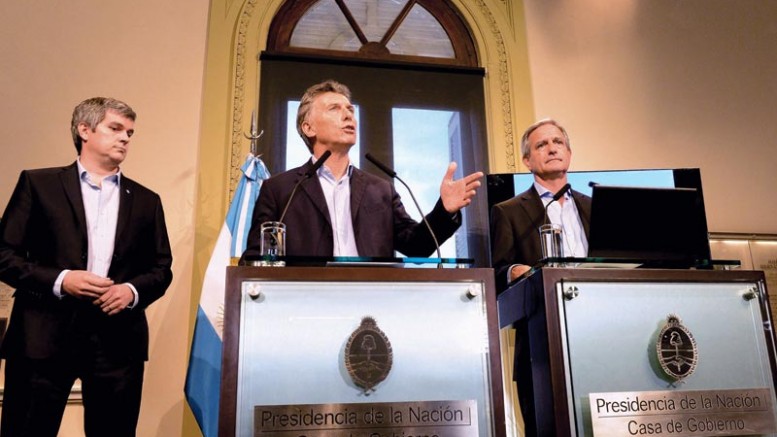
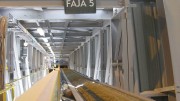
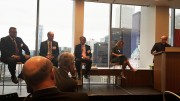
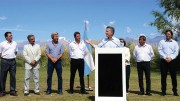
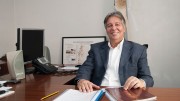
Be the first to comment on "Macri aims to shake up Argentina"